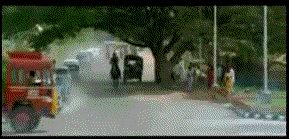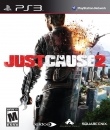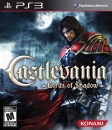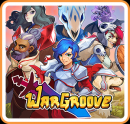source: http://www.edge-online.com/magazine/time-extend-skies-of-arcadia

It sounds like a tourist resort more than anything else: ‘Come to Arcadia’ says the brochure, ‘a relaxing videogame destination that’s a holiday of soothing escapism for the retired and burnt out’. But whereas most brochures offer sun, sea and sand, Arcadia’s resort proffers six moons, an ‘ocean’ of fresh air and expansive rock drifts. Instead of redcoats, Arcadia has Blue Rogues. You won’t be so much sipping margaritas by the pool as swigging spicy grog on the deck of a battleship. Despite the floaty, laid-back promise of its title, Skies Of Arcadia is a swashbuckling adventure worthy of its own Disneyland ride: “Where there’s treasure… there are pirates” the game introduces itself.
Piracy in Arcadia comes in two flavours: black and blue. Black Pirates are those who plunder and pillage for their own greedy gain. Blue Rogues, however, are the kind of pirates who are fighting for a right to back up their wares – a band of merry men who steal from the rich in order to keep themselves jolly with homebrew alcohol while helping those in need. The game introduces the Blue Rogues in the midst of a raid on a booty-rich Valuan airship, as energetic teenagers Vyse and Aika throw themselves into the midst of combat before their captain – Vyse’s father Dyne – even makes it aboard.
From the off, Vyse is a refreshingly far cry from the typically moody, self-involved adolescents that often make up the boy-men of fantasy RPGs. Mature, ambitious and earnestly hungry for adventure, he helps give the story some genuine heroic credibility, of voluntary involvement through choice instead of being driven by fate and a disastrous past: empowerment, not obligation. He has both a mother and a father who are present to support him – that RPG rarity of a fully functioning family unit – and there’s no great calamity that haunts him and forces him into seeking adventure.
The moment when Vyse officially leaves home, for example, with his skyfaring dad acknowledging him as an equal, is as touching as it isn’t melodramatic, with both parents on hand to offer their blessings instead of blubbery histrionics. Vyse’s down-to-earth nature is buffered by the aforementioned Aika, an ever-present confidante and childhood friend, and a playful female companion. More games need a marriage like this: splitting the emotional and verbal duties of the lead character into a double act, a sexless husband and wife who can reassure and question one another without the game having to resort to the internal monologue of a glum teen. Aika and Vyse’s relationship is flirty and loving, but never blooms into the dreaded romantic subplot, filled with ellipses and uncomfortable mutterings. Virtual girls and boys can do more than just stumble their ways clumsily and bashfully through formative relationships, it seems. 
The familial feel is reinforced heavily during the latter half of the game, with Vyse nurturing his own crew, establishing a base on a charming deserted island, cultivating the very culture that raised him and continuing his generation. Much in the vein of Dark Chronicle – where players recruit known villagers and allies, and relocate them to certain settlements in order to fulfil future bloodlines – Vyse has the chance to coax plenty of prospective deckhands into his crew. Some, even, from the ranks of his father’s followers.
This recruitment drive forms one third of the game’s interesting subquests; the second is a far less obvious exercise in character building and garnering respect. At numerous times during Vyse’s travels he’ll have to answer pressing questions regarding what to do next, and how to do it. Ultimately, his answer won’t change the flow of events, but making the ‘right’ choice for a Blue Rogue causes the game to make a small chime, indicating that Vyse’s renown has risen. From Vyse The Competent to Vyse The Respected and – ultimately – on to Vyse The Legend, it’s a clever little detail that forces the player to think about the situation, although some of the ‘correct’ answers can seem a little illogical. If the player runs away from too many random battles, Vyse will eventually earn the monicker of Coward, a crushing label considering that the inhabitants of Pirate Isle – the epicentre of pirate life – chat to you in accordance with your reputation.
The majority of Arcadia’s main players are anything but one-dimensional, too, with the exception of drippy weakling Fina. Captain Drachma, for example – an ageing, overweight grump with a hefty metallic arm who cuts in and out of Vyse’s life – has his own heartbreaking agenda, involving a box of feathers and the relentless hunt of a gargantuan Arcwhale known as Rahknam. It’s handled with Arcadia’s signature even-handedness, making revelations all the more touching.
But nowhere is this strength of characterisation more prominent than in the admirals of Valua’s Imperial Armada. A five-strong force of Valua’s best and most well-armed generals, they form Vyse’s main adversaries in the race to retrieve the sacred Moon Crystals. But few of them are as out-and-out evil and dishonourable as their role suggests. Second admiral Gregorio, for example, is a blood relative of one of the game’s heroes, and faces some tough introspection when agendas are fully revealed, leading him to become a martyr for justice. Fourth admiral Belleza, a sensual redhead who forms a swift crush on Vyse, has a tortured family background that spurs her on to back Valua’s brutal masterplan, if only for the good it could bring. Third admiral Vigoro, a macho lunkhead with an embarrassingly phallic battleship, forms a disturbing fascination with Aika, but in defeat he still manages to retain some semblance of honour. It’s these ambiguities among Arcadia’s biggest bad guys that raise them above dreary pantomime villainy, replacing it with something far more worthwhile.
While Final Fantasy VII introduced RPG players to rich and intricate prerendered worlds, Skies Of Arcadia brought with it less detail, but ushered in a far greater sensation of scale without the need for clinical backdrops. Without exception, it’s ripe with colour, and the expanse of sky that the player sails makes the world feel tactile and navigable: they’re in it, not on it. Arcadia’s world is composed of six distinct regions, whose climate is sculpted by its nearest Moon Crystal. Being elemental, these give rise to what seems to be a generic range of locations: the Red Crystal, for example, has formed the parched desert islands of Nasr, and the Green Crystal causes the lush forests of Ixa’taka to flourish. But their implementation is anything but clichéd, as the game fans them out before you with a peacock’s majesty. The fact that everything is suspended in an ocean of sky, drifting between a sandwich of thick cloud, lends the game its own striking visual theme before you’ve even witnessed the gushing waterfalls of Yafutoma or the industry-choked glumness of electricity-powered Valua. And you’ll be seeing plenty of Valua. 
Witnessing the grubby, run-down desperation of Valua’s Lower City is a distressing sight. Every so often the upper echelons of Valua host a public execution in its coliseum for all to see: “It’s comforting to see someone worse off than yourself” offers one of the downtrodden inhabitants. It’s a city torn by a massive class divide, where white bread is a luxury food fit only for the rich, but the inhabitants of both the Upper and Lower Cities live under the same gloomy, lightning-pummelled skies. Being an advanced industrial state with a runaway military budget, Valua plans to capture forces of nature known as Gigas, weapons of mass destruction that brought down the previous civilisation through the corruption of their power. The ruling heads of Valua are not theatrically evil heels, but are trying to solve its problems like any overbearing, paranoid first-world government that’s grown suspicious of the rest of the world: pursue the ultimate in self-defence by ruling with a spiked iron fist. This tale of bloated science versus ecology is not a new one, but it’s handled in a manner that’s neither overblown nor insulting, and the plotline swoops and twists with believable and edible pace.
The game never lets up with this striking sense of location, either. The urge to see what grand delight waits just around the corner is a hefty one, although the definition of ‘corner’ changes quite ingeniously, as the final stretch of Skies Of Arcadia sees you gaining access to the ultimate in uncharted waters. The world as you know it has its boundaries peeled away, as Vyse breaks through the thick cloud cover at the ceiling and floor of the known world. It feels like being given access to the game’s most intimate and prehistoric corners, rejuvenating it with fresh possibilities and discoveries. It makes the game feel as much like a genuine travelogue as a story and stat-powered excuse to save the world. That’s an essential and often undervalued part of an RPG – of feeling well-travelled as much as well-experienced – and it makes the player feel that they’re doing more than just nurturing a hero via the power of statistics.
One of the most prominent gameplay traits of Skies Of Arcadia – especially in comparison to more recent RPGs, and their potentially alienating arms race for esoteric complexity and depth – is its simplicity. It’s stunningly straightforward without feeling at all limp for it, with perhaps only the game’s magic system presenting some confusion. Casting spells uses up both magic and spirit points, and deciding just which enemy would be weak against certain elements sometimes feels garbled. But the remainder of the battle system feels more GCSE than PhD – Super Moves provide a flashy and potent alternative to standard attacks, and any character can choose to specialise in any category of spellcasting. Even the ship-based battle system, using an initially befuddling grid system, would become like the back of the player’s hand in minimal time. And – essentially – it’s possible to savour Skies Of Arcadia without the nagging sensation of needing a guide or a FAQ in your lap in order to see everything on offer. 
Where Skies Of Arcadia is overbearing, however, is in the quantity of random battles and the length of some of its major skirmishes. Players have to scrap it out every few seconds during dungeons, it seems, leading to certain sections feeling too much like a uphill trudge than a freewheeling ride. The combat, however, is often easy, and the arduous length of the more important fights gives the sensation of becoming battle-hardened without having to meet defeat over and over.
Despite this accessibility, however, Skies Of Arcadia is beset early on in the game by a string of harsh baptisms that manage to sting virtually every player at some point along its length. It’s common for RPGs to feature numerous and ludicrous difficulty spikes, but these are often excused because they become the player’s rite of passage, earning them some virtual stripes and making battle knowledge second nature. Arcadia is no different. Taking place after five hours or so of play, this gauntlet begins with a trek through Valua’s sewers to fight the Bleglock, a giant jelly with a soup of skulls swimming about in its stretched-to-transparent belly. Immediately after this is another punishing boss scrap – facing off against the Executioner and his deadly dash attack – and a further series of sub-boss scuffles with no chance to restock supplies of health and magic. Then the player will be handed newbie Fina, who enters the fray with level-one experience, thus making it a tricky task to strengthen her without a hike back to the training grounds of Shrine Island.
Done that? Next up is a lengthy and intense air battle with your first Gigas, one that you’re unwittingly not meant to win, but one where you can easily expend all of your supplies – a mistake, since there’s another major naval battle laying in wait just around the corner, waiting to club the unwary player. Still playing? Then you’ll have to brave the strong winds of the South Ocean, a journey that sees your ship slowing to a plod, with random battles occurring at a seemingly incessant pace and starring enemies that can kill with a single magical attack. Survive this, though, and the game flattens out to become literal plain sailing, allowing players to scoot along and absorb the game’s magical locations and adversaries without stumbling at any subsequent hurdle.
Certain portions of Skies Of Arcadia have not held up since its Dreamcast launch – character animation when exploring dungeons and towns feels almost pensionable – but many aspects remain timeless. The dazzling soundtrack still deserves to ride high in Sega’s greatest hits, tugging and thumping the heart with its excellent sense of atmosphere; the cool chillout lullaby of the Deserted Island, the oppressive melancholy of Valua’s Lower City, or the rush and energy of the all-important battle themes. And everyone who sees it through to its conclusion will be left with a cache of precious memories – that bit with Daccat’s treasure, and the moralistic punchline behind it all; the twisted gravity of the Moon Palace; the sight of a fully powered Prophecy attack.
Skies Of Arcadia remains an RPG apogee, not because of how much it accomplished, but because of how well it did what it did: few others can offer such an all-inclusive package of grand locations, charming stories, ease of enjoyment and characters colourful enough to match the crisp Dreamcast palette itself. Sure, plenty of other games can hit higher notes in each of these regards, but so few of them manage such a captivating synergy. “Where there’s treasure… there are pirates” the game introduces itself. It’s some modesty, though. As far as Skies Of Arcadia is concerned, it’s the other way around.
This is an edited version of an article that orignally appeared in E147. Like what you’ve read? Buy your copy of Edge now for £4.50 and get it delivered to your door (UK and Europe only) at www.myfavouritemagazines.co.uk/gamesradarshop.






























































